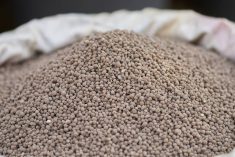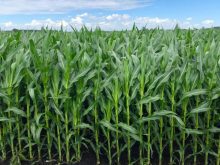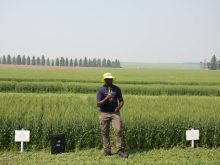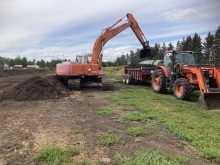You may think that all the talk about sustainability is just people and businesses jumping on a fashionable trend.
But if so, that bandwagon is getting very crowded.
In a 10-day period last month, three new sustainability initiatives were announced by major players in the Canadian ag sector.
First up was the Egg Farmers of Canada, which unveiled an app called National Environmental Sustainability Tool (NEST) “that empowers Canadian egg farmers to measure, monitor and manage the environmental footprint of their own farm.”
Read Also
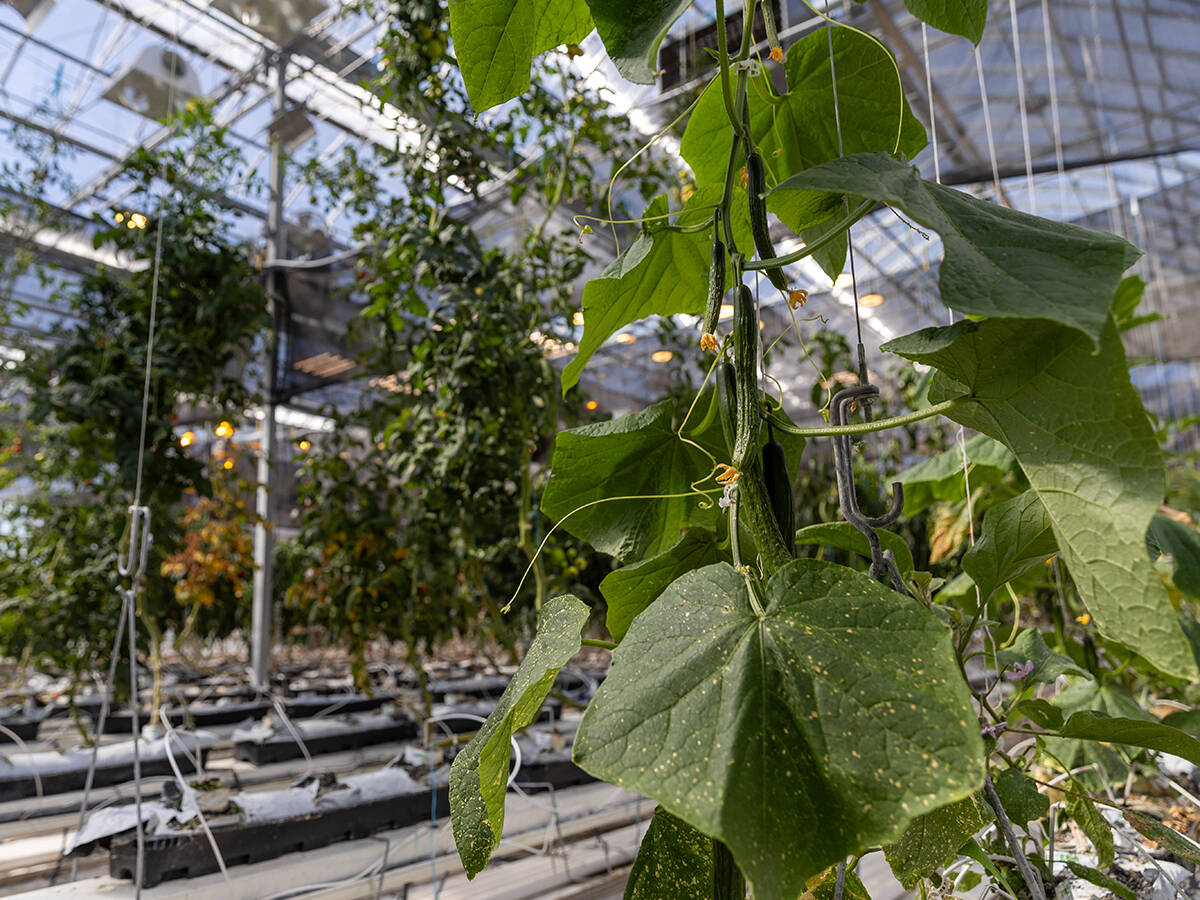
Lethbridge research farm lease renewed for 20 years
Lethbridge Polytechnic and the Government of Alberta have signed a 20-year renewal of a land lease agreement for the institiution’s research farm.
The online tool allows producers to input data collected from their business (such as energy, feed and water use), compare their farms to other operations (the data will be anonymously aggregated) and set targets for improvements.
“With the growing demand and uses of eggs comes the responsibility to produce eggs sustainably, which is why our nation’s egg sector and our hard-working egg farmers from coast to coast remain committed to continually improving operations and practices and why we invest in innovation and new tools like NEST,” Egg Farmers CEO Tim Lambert said in a release.
A few days later, grain giant Richardson Pioneer issued a release saying it “leads Western Canada in 4R acres.”
The company said it has more than 80 “4R-designated” agronomists who have been promoting those fertilizing principles (Right Source at the Right Rate, Right Time, Right Place) to its farmer customers since 2019.
“Richardson Pioneer is proud to be the agri-retailer for 2.24 million acres — or 43.8 per cent of the total 5.12 million western Canadian acres in 2021 that followed the 4R principles,” it said in its release.

However, the pressure is on as the federal government targets a 30 per cent reduction in emissions from nitrogen fertilizers by 2030 and so a lot more farmers need to be adhering to the 4R program, the company said.
“There are nine growing seasons left before the 2030 emission reduction deadline and Fertilizer Canada has a goal of 30 million 4R acres across Canada by that year,” Richardson Pioneer noted.
The same day, Protein Industries Canada announced it was putting $626,000 towards developing the second phase of the National Index on Agri-Food Performance, an effort to create “science-based metrics” on Canada’s food system from farm to retail. The initiative is backed by more than 75 organizations in the food value chain and academia.
“The world needs more of Canada’s vision for modern, sustainable agriculture,” Pulse Canada president Greg Cherewyk said in the release. “This project gives Canadian farmers and the entire value chain the tools they need to quantify their sustainability performance through real data, ensuring the market is appropriately compensating our industry for the positive impact it has on the environment.”
The case for a grain code
But one of the strongest pitches is in a “white paper” released in January by the Canadian Roundtable for Sustainable Crops.
The paper was produced after the organization issued a draft code of practice for grain farmers last year — a move that met with a wall of criticism from producers asking why such a code was needed.
The short answer? Everyone from shoppers to grain buyers are asking questions that farmers need to answer, says the discussion paper.
“Although there aren’t strict sustainability requirements in place right now for the majority of Canada’s grain exports, the industry consensus is that there will be at some point in the future, potentially shutting Canada out of the higher-priced markets,” the white paper states. “There will also be immediate pressure from food company buyers and the government, as they push to meet their commitments to GHG reductions and other climate change mitigation measures.”
The 25-page document backs that statement with results from consumer surveys, a scan of what other countries are doing, and several pages of initiatives undertaken by grain and food companies operating in Canada.
“Canadian consumers trust farmers, but they do not necessarily trust all modern farming practices,” it said, citing surveys by the Canadian Centre for Food Integrity and the government of Saskatchewan.
The white paper also points to the European Union as an example of government restricting use of some pesticides “in response to strong consumer demand for change, which was in turn driven by strong anti-pesticide messaging pushed by NGOs, as well as sensational news coverage of chemical residues found in food products and lawsuits linking chemical residues to human health.”
It also says one of the main drivers in the rise of plant-based faux meats is consumers wanting to lower their environmental footprint.
The report also says farm groups in other countries are responding with their own sustainable or ‘responsible’ codes or certification programs, including grain growers in Australia, soybean producers in South America, and the palm oil sector.
“The fact that several of our competing agricultural-producing countries have already established their own sustainability assurance programs is concerning,” the white paper states. “As consumer demand for sustainably produced agriculture products grows, Canada stands to lose market advantage to competitors who are already certifying their products, especially as their programs become more accepted and recognized globally.”
It also makes clear that the private sector isn’t standing still and gives capsule descriptions of a host of sustainability programs from companies such as Cargill, Cavendish Farms, Maple Leaf, Viterra, General Mills, PepsiCo, McCain Foods, Maple Leaf Foods, Unilever and Warburton’s.
The report can be found at sustainablecrops.ca (opens as a PDF).




